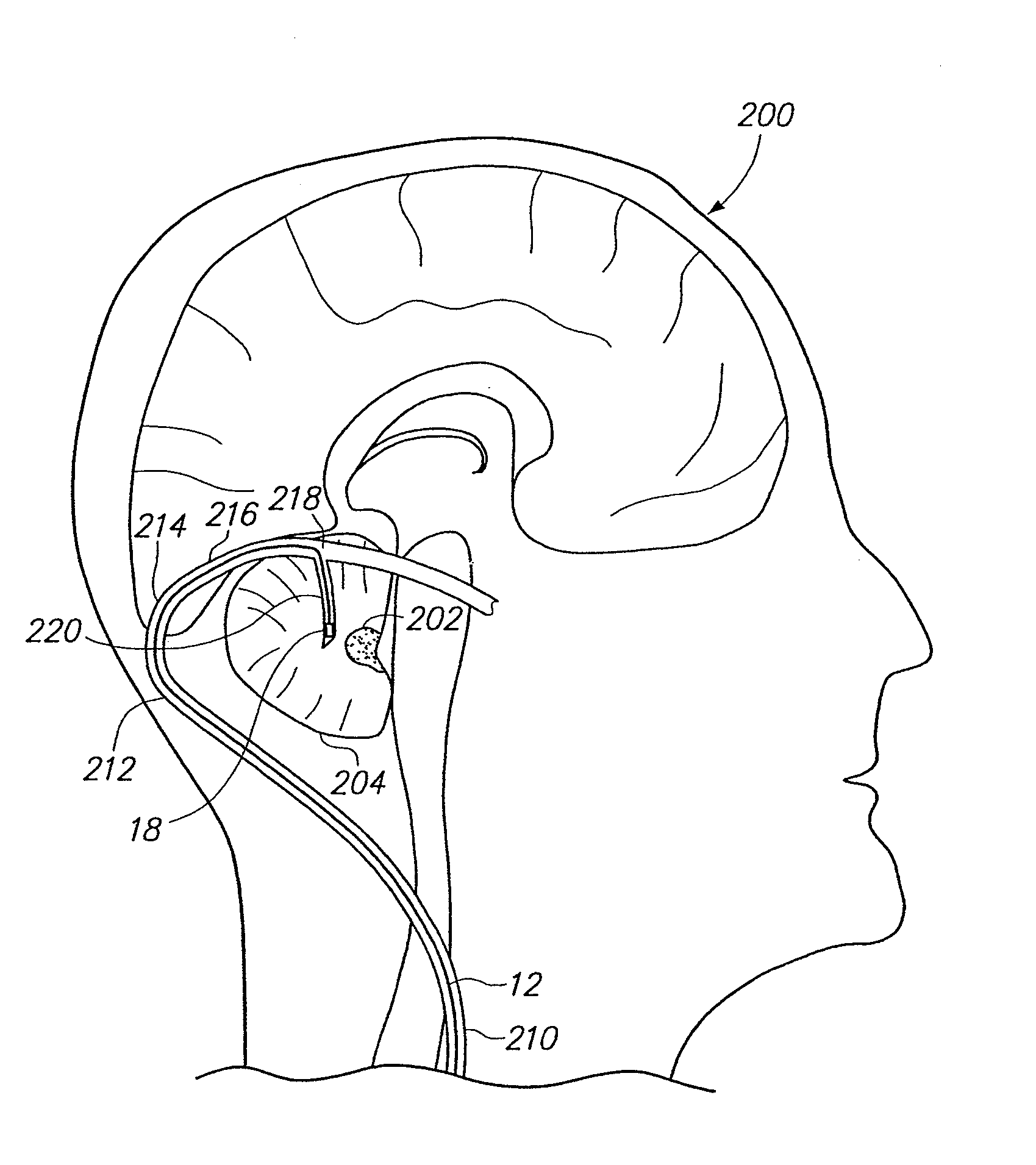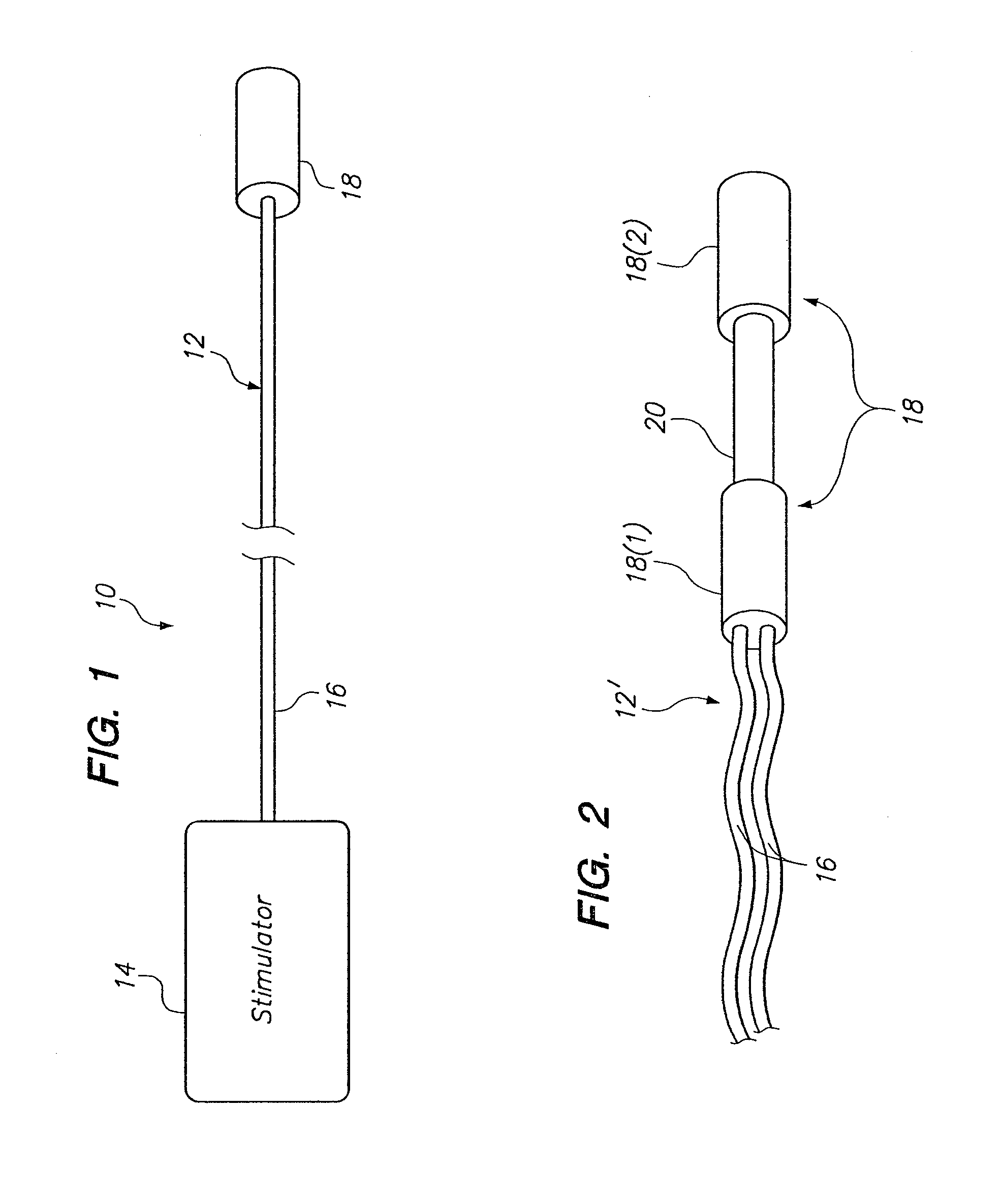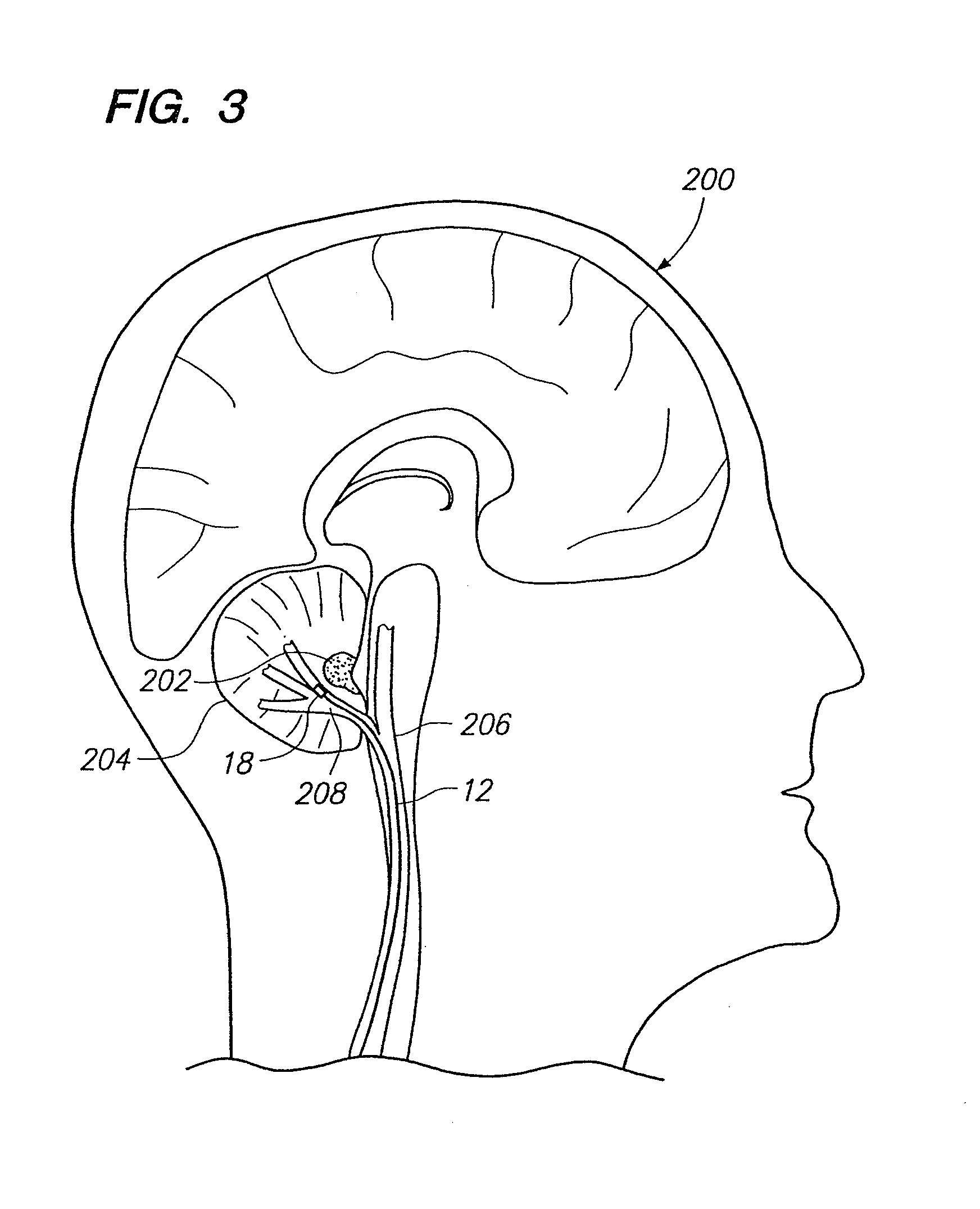Method of stimulating fastigium nucleus to treat neurological disorders
a fastigium nucleus and neuronal technology, applied in the field of neurological disorders, can solve the problems of a lot of invasive techniques, no previous techniques suggest a less invasive approach for stimulating the fn to treat ischemic stroke,
- Summary
- Abstract
- Description
- Claims
- Application Information
AI Technical Summary
Benefits of technology
Problems solved by technology
Method used
Image
Examples
Embodiment Construction
[0017]Referring now to FIG. 1, an intravascular brain stimulation system 10 constructed in accordance with one preferred embodiment of the present invention is shown. In its simplest form, the stimulation system 10 generally comprises a first stimulation lead 12 configured to be introduced adjacent a selected structure of a patient's brain, and an implantable electrical stimulation source 14 configured for delivering stimulation energy to the stimulation lead 12. In alternative embodiments, multiple stimulation leads 12 can be provided.
[0018]The stimulation lead 12 comprises a flexible electrically conductive signal wire 16 and a single electrode 18 mounted at the distal end of the wire 16 using suitable connection means, such as soldering or welding. In the illustrated embodiment, the electrode 18 is cylindrically shaped and has a size that allows it to be delivered through a delivery catheter. The wire 16 comprises an electrically conductive core with an outer insulative layer. Th...
PUM
 Login to View More
Login to View More Abstract
Description
Claims
Application Information
 Login to View More
Login to View More - R&D
- Intellectual Property
- Life Sciences
- Materials
- Tech Scout
- Unparalleled Data Quality
- Higher Quality Content
- 60% Fewer Hallucinations
Browse by: Latest US Patents, China's latest patents, Technical Efficacy Thesaurus, Application Domain, Technology Topic, Popular Technical Reports.
© 2025 PatSnap. All rights reserved.Legal|Privacy policy|Modern Slavery Act Transparency Statement|Sitemap|About US| Contact US: help@patsnap.com



